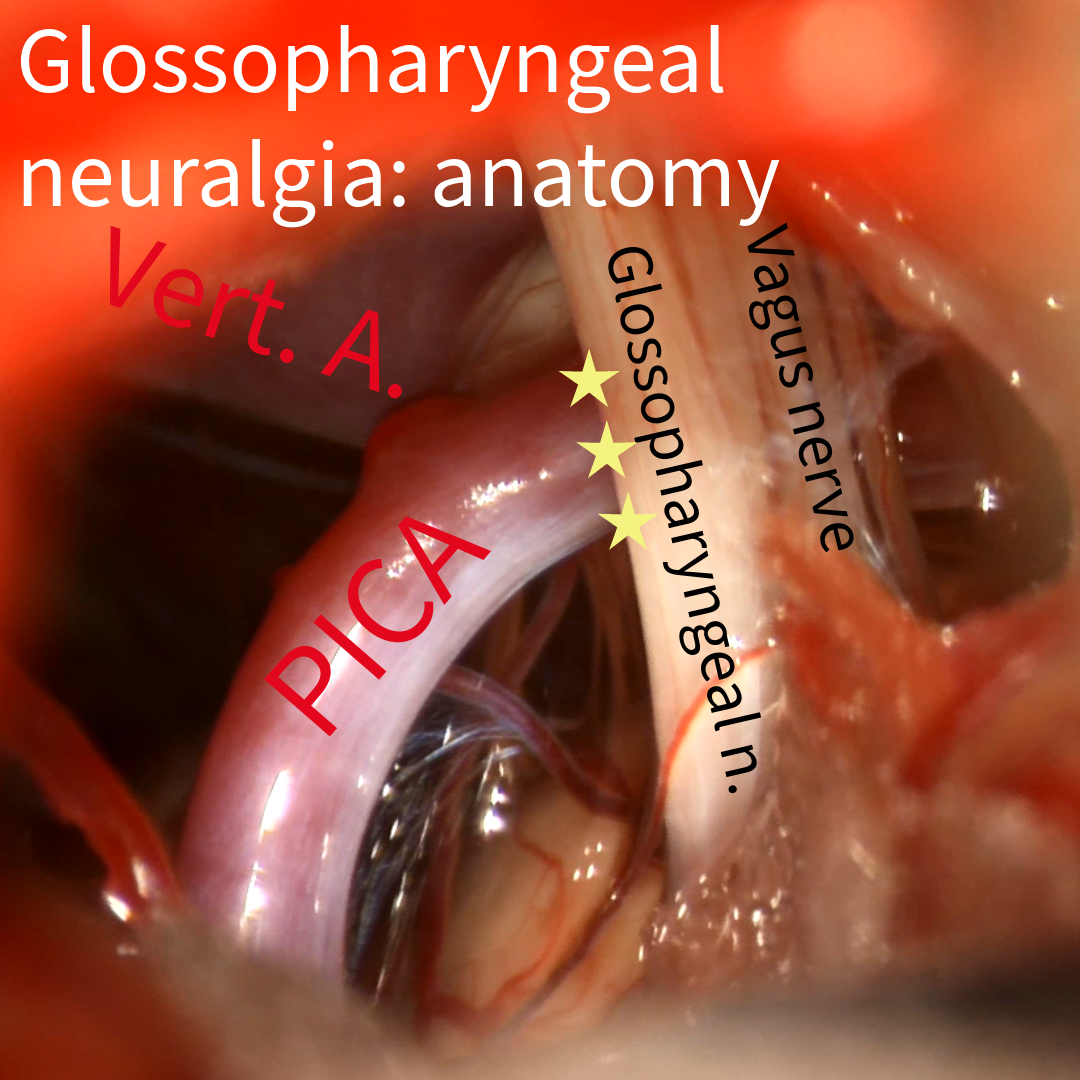Glossopharyngeal Neuralgia
Glossopharyngeal neuralgia is a pain disorder that involves attacks of severe, electric-shock or stabbing pain on one side of the throat, tongue, and/or ear. It is similar to a more common facial pain disorder called trigeminal neuralgia.
Patients with glossopharyngeal neuralgia have attacks of shocking or stabbing pain on one side of the throat, ear, and/or tongue brought on by actions like talking, chewing, swallowing, or yawning. Attacks are brief but unpredictable and intense, which can lead to anxiety. The disorder generally affects only one side of the face. In some cases, there can be overlap in the symptoms with other facial pain disorders, including trigeminal neuralgia. It is important to find a surgeon familiar with these diagnoses, as the corresponding treatments are different.
Medications for glossopharyngeal neuralgia are the same as those for trigeminal neuralgia, namely carbamazepine (Tegretol) and oxcarbazepine (Trileptal), and others, but they tend to be less effective than for trigeminal neuralgia. The diagnosis of glossopharyngeal neuralgia is clinical, meaning it is based on your symptoms and physical examination. I will generally order an MRI of your brain, but this is more for treatment planning and to exclude other problems than to confirm your diagnosis.
Most cases of glossopharyngeal neuralgia are caused by compression of the ninth cranial nerve (glossopharyngeal nerve) by a blood vessel near the brainstem. In some cases, the blood vessel can also compress the tenth cranial nerve (vagus nerve) and cause heart rate and blood pressure changes or even episodes of fainting.
If a patient with glossopharyngeal neuralgia has persistent and bothersome pain despite trials of medications, the preferred treatment is microvascular decompression. Gamma Knife radiosurgery is a less invasive alternative.
In a microvascular decompression, I inspect the glossopharyngeal nerve where it emerges from the brainstem. I dissect any compressive blood vessel away from the nerve, and, if necessary, I use a tiny piece of teflon to isolate the vessel from the nerve. Rarely, the glossopharyngeal nerve may need to be cut. Relief from pain is generally immediate.
If you or a family member is suffering from glossopharyngeal neuralgia or a related facial pain disorder, consider meeting me in consultation to learn more about your treatment options.



